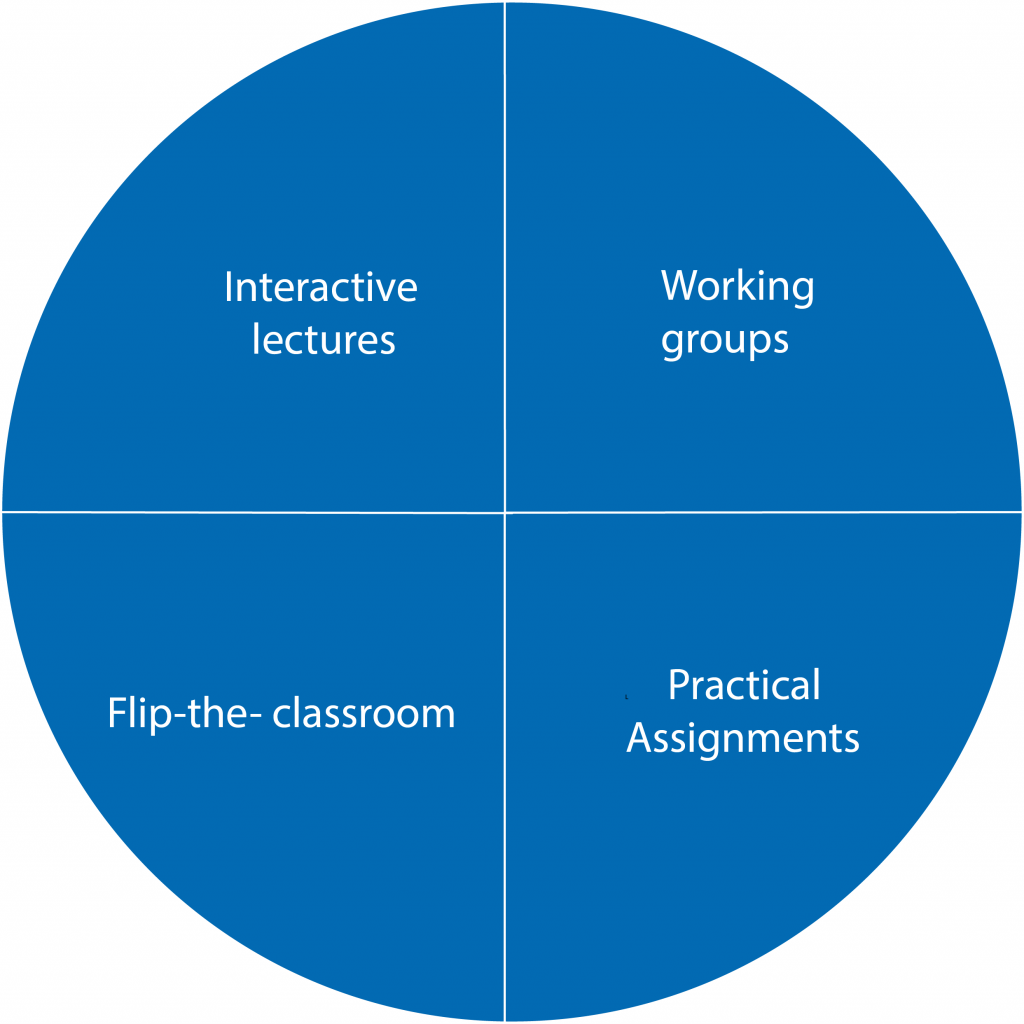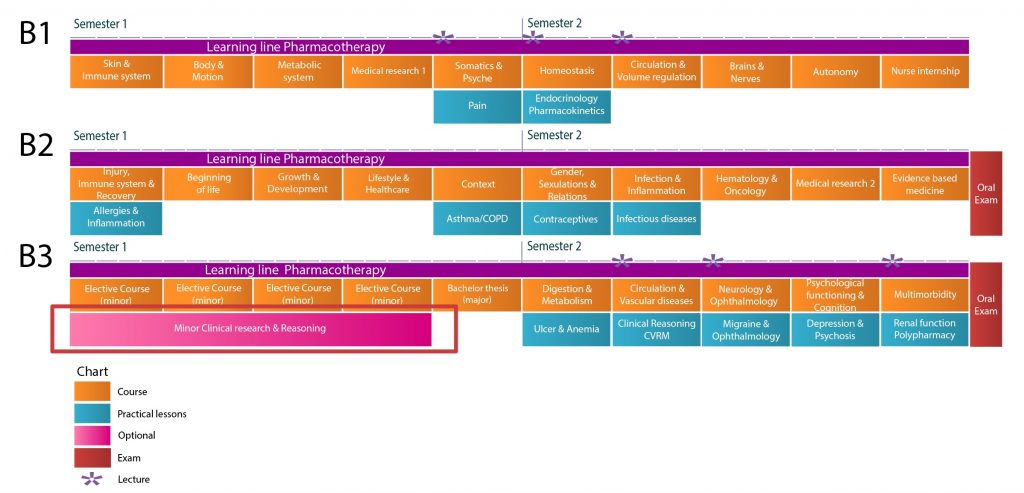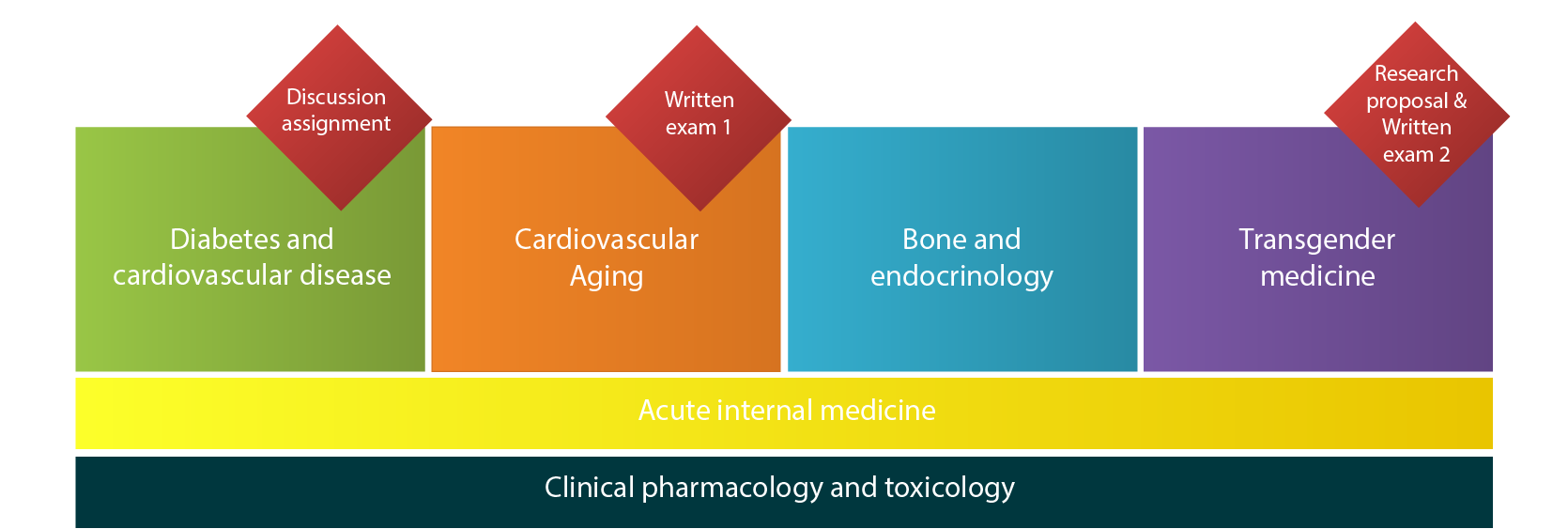RECIPE is responsible for a large part of the Minor Clinical Research and Reasoning in Internal Medicine which is part of the third year curriculum of the medical degree at the Amsterdam University Medical Center, location VUmc. This minor takes place annually from September to January and covers six different topics within Internal Medicine: Clinical pharmacology and toxicology, acute internal medicine, diabetes and cardiovascular disease, cardiovascular ageing, bone and endocrinology and transgender medicine. RECIPE delivers lectures and facilitates working groups throughout the entire minor in collaboration with the acute internal medicine department.
Theoretic models

Course program

Curriculum design
The curriculum is designed to provide students with knowledge of the latest treatment modalities in clinical pharmacology through interactive guest lectures and working groups. Students will have the opportunity to design their own guidelines, conduct a medication review on their grandparents, and stay up-to-date with knowledge about the latest party drugs and toxidromes. Additionally, innovative educational methods, such as creating an Escape Room, will be incorporated (Can Students Create Their Own Educational Escape Room? Lessons Learned from the Opioid Crisis Escape Room – PubMed (nih.gov)/Educational escape room on Vimeo).

